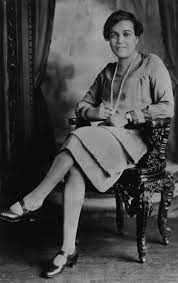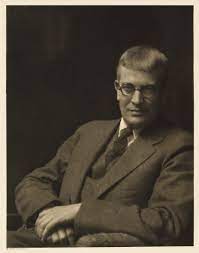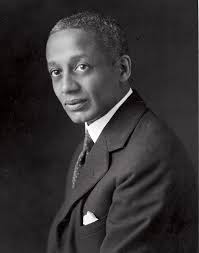This event, as originally proposed by Charles Spurgeon Johnson, 30, the editor of the National Urban League’s journal Opportunity, was to be a dinner celebrating the publication by Boni and Liveright of There Is Confusion, the debut novel by Jessie Redmon Fauset, 41, the literary editor of the NAACP’s publication, The Crisis.

Jessie Redmon Fauset
But when Charles Johnson approached the chair of the philosophy department at Howard University, Alain Locke, 38, to preside as master of ceremonies, Locke expanded the idea. Instead of 20 or so invitees why not have over 100 white and African-American, writers, editors and publishers, celebrating all Black achievement in the literary field?
At one table is double Pulitzer Prize-winning playwright Eugene O’Neill, 35. Over there is founder and editor of the new American Mercury H. L. Mencken, 43. At another table is the chief editor of Survey Graphic Paul Kellogg, 45.
Charles Johnson starts the program with a brief introduction. He turns things over to Locke, the MC. Locke talks about the history of the New Negro Movement, which is trying to eliminate the stereotypes of Blacks in America. He refers to James Weldon Johnson, 52, from the NAACP, and W. E. B. DuBois, 56, managing editor of The Crisis, as being from “the old school,” to which DuBois takes offense.
Then Philadelphia-based collector Albert Barnes, 52, discusses his collection of African art.
James Johnson speaks of the need to encourage young Black writers and artists. Century magazine editor Carl Van Doren, 38, congratulates those writers, and then apologizes for the way they have been treated by the publishing industry. However, Van Doren cautions them not to complain or show their anger if they want to be published.

Carl Van Doren
Horace Liveright, 39, publisher of Fauset’s novel as well as last year’s hit Cane, by Jean Toomer, 29, passes on his financial and marketing advice. Toomer had been invited to the banquet but decided not to come.
A few African-American poets read their poetry, and then Locke finally introduces Fauset, praising her novel. She tells the audience how There Is Confusion had been rejected by a white publisher who told her that Blacks aren’t capable of the emotions she describes in her book.
Fauset ends the evening by complementing all the young writers present, and thanking those who have helped her over the past five years make The Crisis a literary success.
As the guests begin to leave, Kellogg approaches Locke to pitch the idea of doing a special issue of Survey Graphic about the work of these young Black writers, which he would like Locke to edit.

Alain Locke
“Such Friends”: 100 Years Ago… is the basis for the paperback series, “Such Friends”: The Literary 1920s. Volumes I through IV, covering 1920 through 1923 are available at Thoor Ballylee in Co. Galway, and as signed copies at Pan Yan Bookstore in Tiffin, OH, City Books on the North Side and Riverstone Books in Squirrel Hill, Pittsburgh, PA. They are also on Amazon.com and Amazon.co.uk in print and e-book formats. For more information, email me at kaydee@gypsyteacher.com.
This summer I will be talking about the literary 1920s in Paris and New York at the Osher Lifelong Learning Institute at Carnegie-Mellon University.
Manager as Muse, about Scribner’s editor Maxwell Perkins’ relationships with F. Scott Fitzgerald, Ernest Hemingway and Thomas Wolfe, is also available on Amazon.com and Amazon.co.uk in both print and e-book versions.
If you want to walk with me through Bloomsbury, you can download my audio walking tour, “Such Friends”: Virginia Woolf and the Bloomsbury Group.
Jessie Fauset is new to me, thanks – I’ve added her to my classics list to read
That publishers are didactic, dismissive, and often wrong is no surprise, and showing anger at rejection is a failing strategy for any writer. William Kennedy’s Pulitzer-winning Ironweed was rejected fifty times before it found a publisher. Let’s all put on our writer’s pants.
True. It has taken me until now to have my first acceptance…